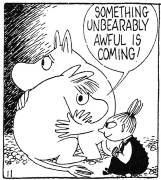|
How fast do feline resorptive lesions happen? My cat needed to be sedated to biopsy a nasal mass and my vet suggested doing a dental at the same time since it would only cost a little more. She found two severely decayed teeth and removed them and he's bounced back wonderfully. What's odd is that he had a normal exam in November with nothing unusual noted. It it possible everything looked normal then? Rads: 
|
|
|
|

|
| # ? Apr 19, 2024 12:46 |
|
1up posted:So I have an almost 14 year old cat with raging dermatitis and you should definitely commit now to a feeding schedule and feed them completely separately. If the itching still happens, you might need an immunosupressant as well. My cat takes atopica/cyclosporine daily and eats isolated from our other cats, but all it takes is 1 little bit of kibble overlooked after a meal to trigger a new episode of scratching a hole into herself. Thanks for that - yeah we had another mild bad stomach day so switching back to soy again, I was kinda hoping for a magic bullet where both cats could eat it and we wouldn't have to worry about food stealing etc and we'd have no more itching or red poos. The steroids handle the itching in the main problem catte (and hopefully we can try ween her off if it is indeed a food allergy causing the itching) , and keeping the other away from the soy kibble should stop her itching as well.
|
|
|
|
Pedestrian Xing posted:How fast do feline resorptive lesions happen? My cat needed to be sedated to biopsy a nasal mass and my vet suggested doing a dental at the same time since it would only cost a little more. She found two severely decayed teeth and removed them and he's bounced back wonderfully. What's odd is that he had a normal exam in November with nothing unusual noted. It it possible everything looked normal then? Most feline dental disease is hidden under the gums which is why dental radiographs are so important. Most will just tolerate the discomfort.
|
|
|
|
YourCreation posted:Most feline dental disease is hidden under the gums which is why dental radiographs are so important. Most will just tolerate the discomfort. Good to know. She said he flinched (under anaesthesia) when she probed one of them so it must have really hurt.
|
|
|
|
Our cat continues to be medically baffling. She got a presumptive diagnosis of Transitional Cell Carcinoma 6 weeks ago when we did an ultrasound to look for the cause of her high calcium levels. We were going to start her on palladia but her appetite was still not great and we found out it was because her pancreatitis was flaring up again so we had been working on getting that under control and she's back to eating well again and putting on weight. Yesterday we noticed she was being weird at the litter box, only peeing a small amount before getting out, going to another litter box, and peeing a small amount again. Assuming this was progression of the cancer we took her in for an ultrasound today before finally starting her on palladia, and apparently her tumor has shrunk slightly and was visibly less dense in the ultrasound despite her getting no cancer treatment since her diagnosis.
|
|
|
|
On Wednesday, my cat started showing lethargy and didn't eat all day. Took him in Thursday morning (yesterday) to the emergency vet, they diagnosed him as having a fever but were unsure of the cause. He was briefly (like 10 seconds) exposed to an outdoor cat 10 days ago but that was the only thing I can think of. After coming back from the vet, he ate some but slept most of the day, probably since one of the meds causes sedation. He hasn't used the litter box at all. Now this morning, I put out some food but he still hasn't eaten. He vomited some of the food he ate yesterday though. He also started having eye pus this morning. He did start purring when I petted him; that purring wasn't happening at all on Wednesday. Kinda stressed since I'm supposed to be out of town tomorrow but will be back Sunday morning.
|
|
|
|
You need to get your kitty back to the vets. A cat who is not eating is a ticking time bomb for getting worst (hepatic lipidosis). It may be a viral flare up, but could be things like pancreatitis, pneumonia, UTI, etc. Cats can also purr to self soothe so it doesn't necessarily mean he's feeling good.
|
|
|
|
Anyone here have experience with diabetic cats? Mine was recently diagnosed and it's proving to be a bit stressful. We started him on two units of insulin but that didn't seem to be doing much so he was upped to three a few weeks ago. Late Friday night he had some sort of episode where he seemed very out of it and blind from what I could tell. I took him to the emergency vet but the cause was inconclusive. The most obvious answer was hypoglycemia though his blood sugar reading wasn't quite low enough for the vet to feel that was the cause. On the vets advice I skipped his next insulin dose and now have him back on two units until I can talk to his regular vet. One thing I'm struggling with is his diet. He's always been a free feeder but you're recommended to limit them to two meals a day. I tried that but it seems he has bilious vomiting syndrome and will throw up bile if he goes too long on an empty stomach. Naturally, the solution to that is free feeding. Plus he had gained weight in between vet visits so I somehow need to balance him getting enough to eat when he gets his insulin while also avoiding the vomiting and preventing weight gain.
|
|
|
|
J-Spot posted:Anyone here have experience with diabetic cats? Mine was recently diagnosed and it's proving to be a bit stressful. We started him on two units of insulin but that didn't seem to be doing much so he was upped to three a few weeks ago. Late Friday night he had some sort of episode where he seemed very out of it and blind from what I could tell. I took him to the emergency vet but the cause was inconclusive. The most obvious answer was hypoglycemia though his blood sugar reading wasn't quite low enough for the vet to feel that was the cause. On the vets advice I skipped his next insulin dose and now have him back on two units until I can talk to his regular vet.
|
|
|
|
J-Spot posted:
I free feed my cats, however if I forget to fill up the bowls and they are empty for half a day or so the cats will gorge themselves and then vomit. For this they make special bowls specifically for slowing down eating. For the life of me though I can't remember the one that I personally had.
|
|
|
|
Slugworth posted:Have you tried meal feeding with canned, and leaving a bit of dry out all day? If he'll adapt to that, perhaps snacking on dry throughout the day would keep the vomiting at bay without affecting his meal feeding too much. Otherwise, you could ask your vet about glargine, which depending on the cat might work better with a free feeding schedule. It's a more expensive insulin though. Yeah, that's kind of what I've been trying to do although he's not really wild about wet food. I'll put some out and he'll take a few bites before walking away but if there's dry food available to him he'll prioritize that. I do have him on glargine and the vet advised to at least make sure he's getting at least a few bites in at the time he gets the insulin.
|
|
|
|
Do you all think a vet be willing to give a second opinion with a phone consultation if they're provided extensive history/lab results? We took one of our cats to the ER yesterday based on some lab work that came back from our family vet to get her evaluated and the ICU doctor there said pretty much there was no viable treatment path and recommended euthanasia. The summary of her condition is: Hemolytic Anemia with an RBC of ~15, Moderate CKD, and Heart Failure (I don't know how this is measured, but he said there is some metric and hers measured 15 times normal?). He said that treating the Heart Failure could put her in to Kidney Failure, treating the Anemia would exacerbate the heart failure, and the fluids needed to stabilize the kidneys would also exacerbate the heart failure. Visibly, she looks like she did a month ago, she's eating/eliminating/playing, will still climb cat trees, etc. We're timing her breathing and she's at about 32 breaths per minute, the ICU doctor said the fluids around her chest/lungs were relatively low, with the majority of the fluids around her abdomen. At a minimum we wanted to prevent her from hitting the tipping point until Monday so if she has to go we can do it with our family vet, so he gave her an injection of a diuretic to help with the fluids and a low dosage of oral diuretics to take home. We just want to make sure that if there's a viable treatment path we leave no stone unturned, but if she does only have days left we don't want to waste them driving her an hour to see a specialist.
|
|
|
|
If your cat has a respiratory rate of 32 bpm she is not in heart failure. She may have evidence of heart disease like a heart murmur, and maybe they scanned her left atrium. Anaemia can cause both a heart murmur and left atrial enlargement. If it's a blood test than it may indicate some cardiac disease but failure is a clinical diagnostic not a blood test one. Important differentiation. Based on your comments I am guessing there is pleural and abdominal free fluid? Balance cardiac and renal disease can be challenging, but not impossible. Your cat may be dehydrated from the clinical disease causing the fluid in the abdomen, which will artificially increase the kidney values. I would support you getting a referral and more information as I don't think everything has been explained to you as well as it could have, and the primary problem here isn't clear. If she truly has immune mediated haemolytic anaemia than steroids are the mainstay of treatment and may put her at risk of heart failure, but again I would still get more information.
|
|
|
|
Yes, there is pleural and abdominal free fluid. Our plan was to talk to our primary vet tomorrow and see what she thinks, the last time we talked to her she recommended we take our cat to the ER to be evaluated but she did not seem to think her situation was life-threatening unless her anemia got worse. If she is not in heart failure, is 12.5 mg of furosemide twice a day (she weighs 12lb) until we can get her in to see another vet going to cause significant damage to the kidneys? Our family vet said she had heard a murmur before and heard a gallop on her last checkup, but she said thinning of the blood due to anemia could cause that. Reik fucked around with this message at 17:30 on May 16, 2021 |
|
|
|
If you stop the furosemide and the respiratory rate creeps above 40 when asleep then either your kitty was in failure and needs the furosemide, or she's becoming progressively more anaemic. You should be able to get an emergency/urgent appointment tomorrow or Tuesday I would imagine.
|
|
|
|
She got a furosemide injection yesterday and we gave her her first dose this morning, and I'm counting her at ~24 breaths per minute while she's asleep. The 32 breaths was when she was awake but at rest.
|
|
|
|
Any updates?
|
|
|
|
She has been stable since Saturday, we talked to our vet on Monday and she didn't disagree with the ER vet's findings, just that his timetable was probably a bit rushed because he hadn't seen the slow progress on what she has going on. We're taking her in today for a re-check on the numbers and if she thinks she can handle it some ultrasound/x-rays to try and see if what she has going on is treatable. For the heart disease, her NT-proBNP number was 1500, which is why the ER vet said she was in heart failure when paired with the pleural and abdominal fluids.
|
|
|
|
Her RBC is relatively stable, 14.7 this time vs 15.0 previously, although she was a little dehydrated this time. She's got mild fluid around the lungs and moderate fluids around the abdomen, but her left atrium is only mildly dilated while her left ventricle looks normal. Her fluid pump ability does look lower, and she still hears the murmur and gallop. Her kidneys are doing well with the Lasix, values are relatively unchanged since last checkup, so her kidney disease is still moderate. They're sending the imaging off to a specialist to look at and make sure they didn't miss anything, but the big questions are still: what is causing the fluid buildup if it's not heart disease, and what is causing the anemia if it's not IMHA. We're gonna see if we can get her in to see an internist next week.
Reik fucked around with this message at 00:14 on May 22, 2021 |
|
|
|
We had to say goodbye to Tulip today. On saturday she started going downhill, ragged breathing and tremors so we took her in to the ER. With the recent ultrasound they decided to go ahead with a transfusion and she got through it without complications and we brought her home last night. She was still sluggish but eating, using the litter box, and purring, but today she started to open mouth breathe and had moments where she wasn't breathing at all so we had to let her go.
|
|
|
|
I'm really sorry Reik 8(
|
|
|
|
I recently adopted my dog, a six year old lab/pug mix, from a shelter. Since then he's been to the vet for his bi-annual physical and a follow-up booster shot for one of his vaccines. He's gotten a clean bill of health, no issues with weight or anything else. However, he seems to be breathing heavily lately when lying down - not quite wheezing, but loudly and fairly rapidly, 60+ BPM if that's at all helpful. On the one hand, he seems perfectly happy and not distressed, and he's been seen by the vet just a week ago. It doesn't seem likely to me that they'd miss a major issue, like kennel cough or anything. He seems fine eating, moving, etc. and his gums don't look blue to me, and he has been generally a loud, grumpy boy, so I can't even tell if this loud breathing is new. On the other hand, I don't want to ignore an issue and just assume the vet would catch it. Am I being overly concerned as a new pet owner, or should I take this seriously?
|
|
|
|
I'm tore up. I have a 10 year old mutt and pretty much every year for the last five years, she's had a growth pop up. They've been removed, not all have been biopsied but most have been lipomas until the last. She was diagnosed with grade 2 sarcoma but cleanly cut with wide margins. Now, less than six months later, another spot popped up on her opposite side. Her last surgery was so hard on her and I feel like I'm just chopping her up.
|
|
|
|
Is Vetsulin's "dispose after 42 days" thing something needed for stability/safety or just a cash grab? We can barely manage $60/vial that often but if it's the only option it's the only option.
|
|
|
|
NarwhalParty posted:I'm tore up. I have a 10 year old mutt and pretty much every year for the last five years, she's had a growth pop up. They've been removed, not all have been biopsied but most have been lipomas until the last. She was diagnosed with grade 2 sarcoma but cleanly cut with wide margins. Now, less than six months later, another spot popped up on her opposite side. Her last surgery was so hard on her and I feel like I'm just chopping her up. I feel you on that. My poor pug mix has had so many surgeries in the last few years…first it was a bunch of dental stuff, and then growths or tumors. I had to start asking my vet to be very frank with me about what was absolutely necessary in regards to surgery considering her age (15). Hopefully you can trust your vet to tell you what is best for your buddy. It’s hard.
|
|
|
|
Marlo is a 12ish years old manx (I'm assuming manx because he has a stub for a tail and his back legs seem a little longer than his front) cat with a slight heart murmur. Yesterday I noticed that when he gets up from laying down he is limping with his right leg. After a minute or so of moving around the limp almost goes away but I can still tell there's something going on. He doesn't act like it's causing him pain and he's still eating, drinking, using the litter box and demanding attention and food as much as ever. If I play with him he engages and when messing with his back legs he doesn't act like there's any pain. The more I observe him walking around it looks like it's the joint or hip that is bothering him. I contacted my vet about his 6 month checkup (the vet wants to see him twice a year to keep an eye on his heart murmur as well as do a blood test for heart disease every other visit) scheduled for June 21. They said to keep an eye on it and if it gets worse to contact them. My vet tech friend has recommended giving him Nutramax Cosequin Capsules Joint Health Cat Supplement with his wet food and change his dry food to Purina Pro Plan Adult 7+ Salmon dry cat food. Is there anything else I can do for him before the vet visit? Any input would be greatly appreciated.
|
|
|
|
I've got a cat who started scratching her neck and head. I took her to the vet who said it was due to earwax and told me to clean the cat's ears every 2 weeks with a cotton ball and baby oil. I did that 2 weeks later and took her to a follow-up the next day. The vet said 'the ears were super dirty, please start cleaning them weekly. So I took a good look in there and one ear is fine, but the other ear gets completely caked (especially inside the ear canal and behind/in among all of the little ear bumps) with that black/brown wax stuff. If I clean on Monday then the cat will have that left ear back to completely filthy by Saturday or sunday. I started using q-tips too but I really don't want to do that any more (did it twice so far) even though it allows me to get so much gross stuff out. I don't want to damage her eardrums. The vet said it wasn't ear mites. Anyway, I want to maybe use earwax dissolving drops instead? Do they exist for cats? Otherwise I'll have to take her into the vet more often so they can do it themselves. Any advice? There's more black filth in there that I didn't get today because I didn't want to risk loving her ears up. So far I'm just using baby oil, cotton balls and q-tips which I am sure I will rightfully get shouted at about, here.
|
|
|
|
redreader posted:I've got a cat who started scratching her neck and head. I took her to the vet who said it was due to earwax and told me to clean the cat's ears every 2 weeks with a cotton ball and baby oil. I did that 2 weeks later and took her to a follow-up the next day. The vet said 'the ears were super dirty, please start cleaning them weekly. So I took a good look in there and one ear is fine, but the other ear gets completely caked (especially inside the ear canal and behind/in among all of the little ear bumps) with that black/brown wax stuff. If I clean on Monday then the cat will have that left ear back to completely filthy by Saturday or sunday. I started using q-tips too but I really don't want to do that any more (did it twice so far) even though it allows me to get so much gross stuff out. I don't want to damage her eardrums. In regards to earwax dissolving drops, there certainly are veterinary ear cleaners meant to break up ear wax (cerumene for example), but the fact that it's building up at an increased rate in just one ear suggests an infection to me, which would require medicated ear drops.
|
|
|
|
Slugworth posted:You mentioned they said it wasn't mites, but did they check for a bacterial or fungal infection? Ok, thanks. It is REALLY loving weird that after a cleaning the right ear will be fine, and not build up much at all to clean. The left ear will be loving CRUSTY within 6 days. My little cat shakes her head a lot and there's a weird noise when she does it too, which I think is all the gunk inside her ear. This is fairly new. I really got a lot of gross poo poo out today. I'll call the vet tomorrow.
|
|
|
|
I was working an ear infection on my dog for the better part of a year before we finally licked it with a comprehensive cytology and a specially formulated antibiotic solution tailored to what the vet found.
|
|
|
|
I've got a 2-year-old cat with recurrent stomatitis (gum inflammation), and so far, she's been getting occasional (ca. every 4 months) steroid and antibiotic shots to control the inflammation. The vet says that the best solution is probably to remove her teeth, and I took her to a specialist vet dentist this morning. The dentist recommended extracting all her teeth, which with anesthesia and all would cost about $3200 USD. Does all this sound correct? This fluffy little goof: 
|
|
|
|
|
Lord Zedd-Repulsa posted:Is Vetsulin's "dispose after 42 days" thing something needed for stability/safety or just a cash grab? We can barely manage $60/vial that often but if it's the only option it's the only option. I have a similar issue, which I posted in the cat megathread. Got no answer, so I'll try here. Cornwind In the Cat Thread posted:My cat is on caninsulin, has been for several years. I was told to keep the vials refrigerated, so I have and always do. Take the vial out for the twice daily injections, put it back.
|
|
|
|
a foolish pianist posted:I've got a 2-year-old cat with recurrent stomatitis (gum inflammation), and so far, she's been getting occasional (ca. every 4 months) steroid and antibiotic shots to control the inflammation. The vet says that the best solution is probably to remove her teeth, and I took her to a specialist vet dentist this morning. The dentist recommended extracting all her teeth, which with anesthesia and all would cost about $3200 USD. Not to talk you out of it if money isn't a huge factor in your decision, of course, just noting it's not something outside the scope of general practice ability to do well and safely. Cornwind Evil posted:I have a similar issue, which I posted in the cat megathread. Got no answer, so I'll try here. Your vet definitely isn't fooling with you to make money. Caninsulin (vetsulin in the us) is specified by the manufacturer to be stored in the fridge at all times. Their faq helpfully states that if you forgot yo refrigerate it, you should consult your veterinarian. All the documentation they give your veterinarian however says to refrigerate it at all times. So your vet can either cover their rear end the same way the manufacturer has and refuse to ok the use of unrefrigerated product, or they can soooort of cover their rear end and say "I mean, a few hours is fine, it happens in animals and people and doesn't seem to be an issue, but I mean, it's supposed to be refrigerated". I can say from experience that every doctor has a different number of hours they will ok, because it's not exactly a known thing. They rely on manufacturers conducting the actual studies, and when that stuff isn't given, then it's just what they've personally seen used as rule of thumb in school, or from other doctors, etc. As to the other question about the 42 day limit. Again, not a cash grab by any doctor - They again rely on manufacturers for this info. That time limit differs by country as well, on the exact same product, btw, so it's further complicated by regulation well above any veterinarian's purview. You may stumble upon a doctor that once saw a study, or talked to a rep who said "internal studies actually indicate it lasts much longer", or what have you, but most vets read the label on the bottle and don't have any extra info to share with you, outside of again, things like "well, we once had a client that used it for longer and it was never an issue, but I mean, the label says...". Slugworth fucked around with this message at 14:46 on Jun 22, 2021 |
|
|
|
In that case they should make smaller vials -- my cat gets a total of 84 units in that time frame; the vial contains 400. I'm almost more annoyed by the waste than the cost.
|
|
|
Slugworth posted:It is the unfortunate end point to most bad stomatitis cases. As to having it done by a veterinary dentist though, while having specialists involved is top tier medicine, extractions (even full mouth) are something a general practice doctor should be able to handle for significantly cheaper. Did your GP already decline to do it? I've really only ever seen people referred out to a dentist if they want to save teeth. Then again, I've only worked at clinics with dental x-ray units, which I would consider a necessity for extractions. I'm really torn about this. She seems happy, and getting the steroid injection every three or four months is working, at least for now. I hate the idea of taking her teeth when we've got a system that's working all right for the moment, but on the other hand, I know the steroids are taxing for her system. In general, what's the recommended sequence of events for treating stomatitis? We've gotten different recommendations from different doctors, and websites seem to disagree about what to do and when. EDIT: I spent the afternoon reading studies, including some meta studies and this nice recent (2020) overview of stomatitis: https://www.vetsmall.theclinics.com/article/S0195-5616(20)30027-9/fulltext I wish that the Virbac omega were more available in the US - the literature suggests that it seems promising. a foolish pianist fucked around with this message at 20:56 on Jun 26, 2021 |
|
|
|
|
I'm going to call the vet in the morning, but was hoping for advice here as well. I've got a dog with congestive heart failure and most of his problem is coughing right now. He has energy, for a 12 year old dog he has amazing mobility and if anything he's even more food motivated than ever. I think at least some of the coughing might be because his throat is irritated from coughing so much. Is there something that's safe that will soothe his throat at least a little bit? He's pretty happy other than the multiple coughing fits per day. He's already on pretty high doses of medication and his situation is delicate enough that the vet doesn't want to do too much else unless he starts deteriorating further.
|
|
|
|
How long should I wait to take my cat to the vet for a limp? Overnight he apparently knocked out one of the second floor window screens, and probably fell to the ground level from there (I don't know when this happened as I was asleep and he was sitting on the outside window sill downstairs meowing at his brother who was inside). I brought him inside, and he hustled up the stairs, then came back down when I gave them their treats as normal in the morning and he seemed fine, including jumping on the kitchen counter which he is definitely not supposed to be doing. It wasn't until later I noticed him limping. His back left leg seems a bit injured, but doesn't look unusual or anything. I figured I'd monitor for a day and see how he does, since my vet is closed until Tuesday, anyway. (Why does he always end up having to go to the vet on holiday weekends?)
|
|
|
|
Dogwood Fleet posted:I'm going to call the vet in the morning, but was hoping for advice here as well. I've got a dog with congestive heart failure and most of his problem is coughing right now. He has energy, for a 12 year old dog he has amazing mobility and if anything he's even more food motivated than ever. I think at least some of the coughing might be because his throat is irritated from coughing so much. Is there something that's safe that will soothe his throat at least a little bit? He's pretty happy other than the multiple coughing fits per day. He's already on pretty high doses of medication and his situation is delicate enough that the vet doesn't want to do too much else unless he starts deteriorating further. Honey or codeine. Most dogs with CHF don't cough unless their left atrium is huge, so he could actually have some form of allergic airway disease or collapse (trachael collapse, bronchomalacia, etc). Cough suppressants like the ones I mentioned should be safe. If you're in the USA I think butorphanol liquid is also available.
|
|
|
|
Endless Mike posted:How long should I wait to take my cat to the vet for a limp? Overnight he apparently knocked out one of the second floor window screens, and probably fell to the ground level from there (I don't know when this happened as I was asleep and he was sitting on the outside window sill downstairs meowing at his brother who was inside). I brought him inside, and he hustled up the stairs, then came back down when I gave them their treats as normal in the morning and he seemed fine, including jumping on the kitchen counter which he is definitely not supposed to be doing. It wasn't until later I noticed him limping. His back left leg seems a bit injured, but doesn't look unusual or anything. I figured I'd monitor for a day and see how he does, since my vet is closed until Tuesday, anyway. (Why does he always end up having to go to the vet on holiday weekends?)
|
|
|
|

|
| # ? Apr 19, 2024 12:46 |
|
So an update: I had him and his brother confined to our office overnight. When I checked on them in the morning he had no limp at all and seemed totally fine. I kept them in office for the day just to let him get some more rest, but every time I checked on them he seemed fine and playful and no problems getting around. I'm going to call my vet tomorrow morning to see what they think but I'm definitely less worried than I was on Saturday.
|
|
|

























